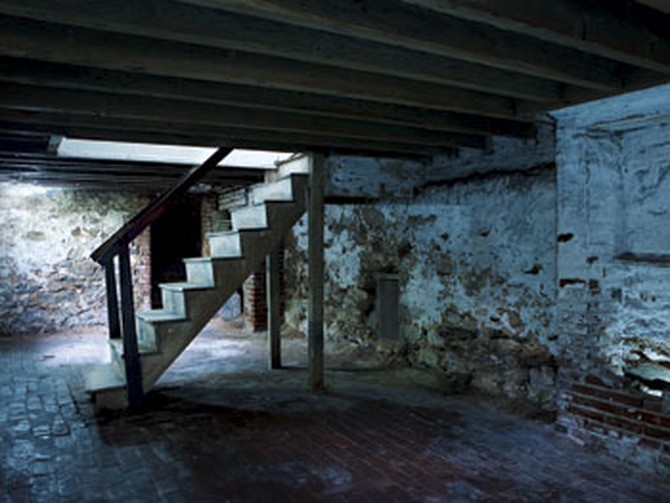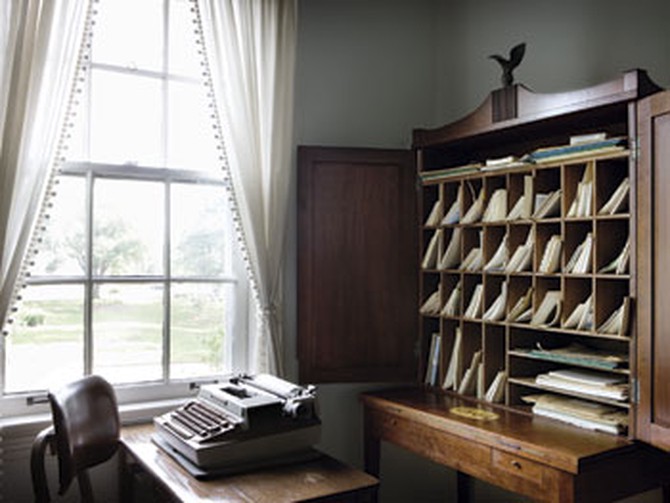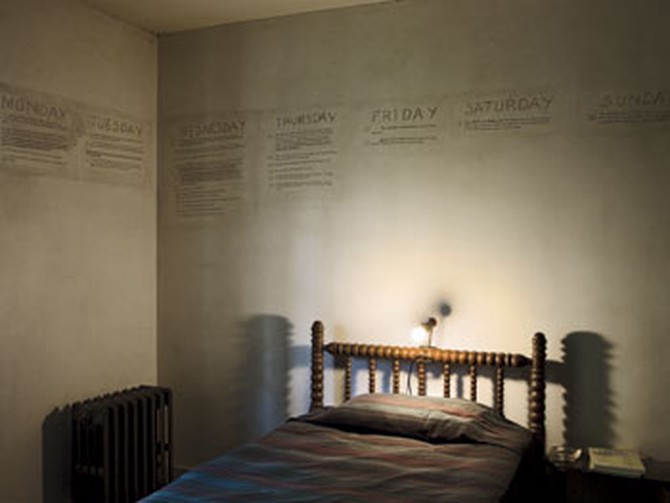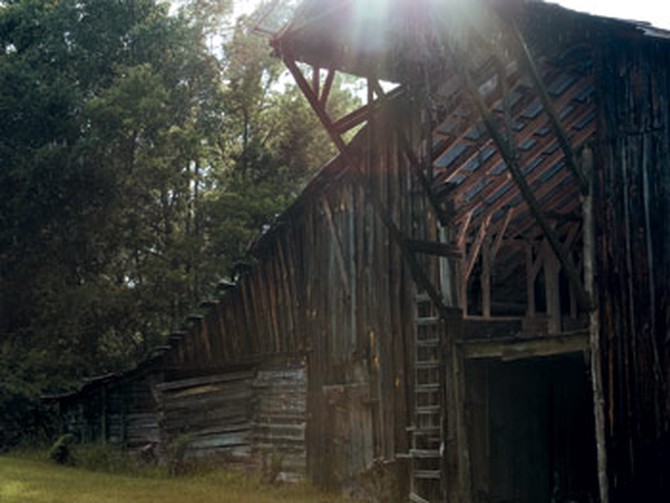5 Legendary Writers' Homes

Edith Wharton's View
The Mount, Lenox, Massachusetts
The first female novelist to win a Pulitzer Prize, Wharton spent several hours writing in bed each morning. This is the view from her second-story bedroom, which mirrors the panorama her character Lily Bart takes in below.
The first female novelist to win a Pulitzer Prize, Wharton spent several hours writing in bed each morning. This is the view from her second-story bedroom, which mirrors the panorama her character Lily Bart takes in below.
Everything in her surroundings ministered to feelings of ease and amenity. The windows stood open to the sparkling freshness of the September morning, and between the yellow boughs she caught a perspective of hedges and parterres leading by degrees of lessening formality to the free undulations of the park.Open daily; $13 to $16 admission; www.edithwharton.org. The Mount faces foreclosure in October 2008. Keep this landmark open by contributing to Save the Mount. For details, visit www.edithwharton.org/savemount.php
— The House of Mirth, 1905

Edgar Allan Poe's Basement
Philadelphia, Pennsylvania
The dismal atmosphere of Poe's cellar is unmistakably echoed in "The Black Cat," one of the many Gothic short stories he wrote during his lean years in Philadelphia.
Open Wednesday to Sunday; free admission; www.nps.gov/edal
The dismal atmosphere of Poe's cellar is unmistakably echoed in "The Black Cat," one of the many Gothic short stories he wrote during his lean years in Philadelphia.
Of my own thoughts it is folly to speak. Swooning, I staggered to the opposite wall. For one instant the party upon the stairs remained motionless, through extremity of terror and of awe. In the next, a dozen stout arms were toiling at the wall. It fell bodily. The corpse, already greatly decayed and clotted with gore, stood erect before the eyes of the spectators. Upon its head, with red extended mouth and solitary eye of fire, sat the hideous beast whose craft had seduced me into murder, and whose informing voice had consigned me to the hangman. I had walled the monster up within the tomb!
— "The Black Cat", 1843
Open Wednesday to Sunday; free admission; www.nps.gov/edal

Eudora Welty's secretary
Jackson, Mississippi
In her home of 76 years, where she drafted such classics as the Pulitzer Prize-winning The Optimist's Daughter, Welty spent much of her time at the typewriter, facing this piece of furniture.
Guided tours on Wednesday to Friday; $5 admission (free every 13th of the month); www.eudorawelty.org
In her home of 76 years, where she drafted such classics as the Pulitzer Prize-winning The Optimist's Daughter, Welty spent much of her time at the typewriter, facing this piece of furniture.
Laurel sat down on the slipper chair. The gooseneck lamp threw its dimmed beam on the secretary's warm brown doors. It had been made of the cherry trees on the McKelva place a long time ago; on the lid, the numerals 1817 had been set into a not quite perfect oval of different wood, something smooth and yellow as a scrap of satin. It had been built as a plantation desk but was graceful and small enough for a lady's use; Laurel's mother had had entire claim on it. On its pediment stood a lead-mold eagle spreading its wings and clasping the globe: it was about the same breadth as her mother's spread-out hand.
— The Optimist's Daughter, 1972
Guided tours on Wednesday to Friday; $5 admission (free every 13th of the month); www.eudorawelty.org

William Faulkner's Office
Rowan Oak, Oxford, Mississippi
According to legend, after Faulkner outlined the seven-day plot of his Pulitzer Prize winner, A Fable, on the walls of his home (he kept a bed in his office), his wife demanded the text be painted over. Outraged, Faulkner rewrote it and shellacked the wall, where the writing remains today.
Open Tuesday to Sunday; $5 admission (free on Wednesdays); www.olemiss.edu/depts/u_museum/rowan_oak/interactive.html
According to legend, after Faulkner outlined the seven-day plot of his Pulitzer Prize winner, A Fable, on the walls of his home (he kept a bed in his office), his wife demanded the text be painted over. Outraged, Faulkner rewrote it and shellacked the wall, where the writing remains today.
Open Tuesday to Sunday; $5 admission (free on Wednesdays); www.olemiss.edu/depts/u_museum/rowan_oak/interactive.html

Flannery O'Connor's Barn
Andalusia Farm, Milledgeville, Georgia
O'Connor's work chronicling the American South, including the short story "Good Country People," often reflected life on her 550-acre dairy farm, where she also tended peacocks and chickens.
Open Monday, Tuesday, and Saturday; free admission; www.andalusiafarm.org
O'Connor's work chronicling the American South, including the short story "Good Country People," often reflected life on her 550-acre dairy farm, where she also tended peacocks and chickens.
It was a large two-story barn, cool and dark inside. The boy pointed up the ladder that led into the loft and said, "It's too bad we can't go up there."
"Why can't we?" she asked.
"Yer leg," he said reverently.
The girl gave him a contemptuous look and putting both hands on the ladder, she climbed it while he stood below, apparently awestruck. She pulled herself expertly through the opening and then looked down on him and said, "Well, come on if you're coming," and he began to climb the ladder, awkwardly bringing the suitcase with him.
"We won't need the Bible," she observed.
"You never can tell," he said, panting. After he had got into the loft, he was a few seconds catching his breath. She had sat down in a pile of straw. A wide sheath of sunlight, filled with dust particles, slanted over her. She lay back against a bale, her face turned away, looking out the front opening of the barn where hay was thrown from a wagon into the loft. The two pink-speckled hillsides lay back against a dark ridge of woods. The sky was cloudless and cold blue.
—"Good Country People," 1955
Open Monday, Tuesday, and Saturday; free admission; www.andalusiafarm.org
From the Fall 2008 issue of O, The Oprah Magazine

